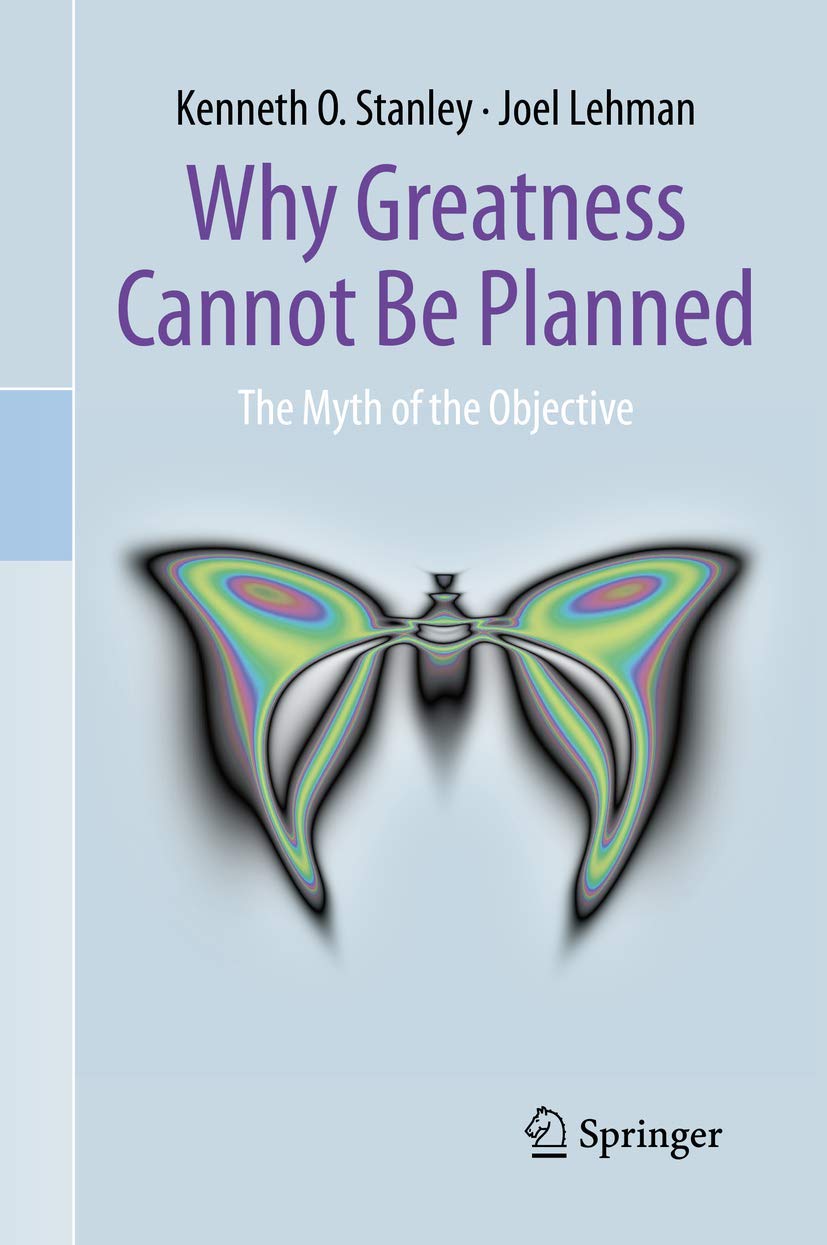Until AI can do that, we have to admit that it's not really aware or sentient or any of the other more ambitious things that have recently been claimed for it.
Can AI teach us anything new about the pattern of prime numbers?
Can AI develop an original proof for the shape of shadows in high dimensional spaces?
Can AI creatively prove a new limit to mathematics?
There are 2 researchers in AI who deserve more attention: Kenneth O. Stanley and Joel Lehman. They wrote a great book: Why Greatness Cannot Be Planned. They look at the limits of utility functions and explain the importance of novelty. As an antidote to some of the hype around AI, I strongly recommend this book:
https://www.amazon.com/Why-Greatness-Cannot-Planned-Objectiv...
https://www.amazon.com/Why-Greatness-Cannot-Planned-Objectiv...
[0] http://www.amazon.com/Why-Greatness-Cannot-Planned-Objective...
http://eplex.cs.ucf.edu/noveltysearch/userspage/ http://www.amazon.com/Why-Greatness-Cannot-Planned-Objective...
I'm a big fan, and would love to talk about this anytime.


Also wrote about it here https://blog.comini.in/p/what-should-replace-grades